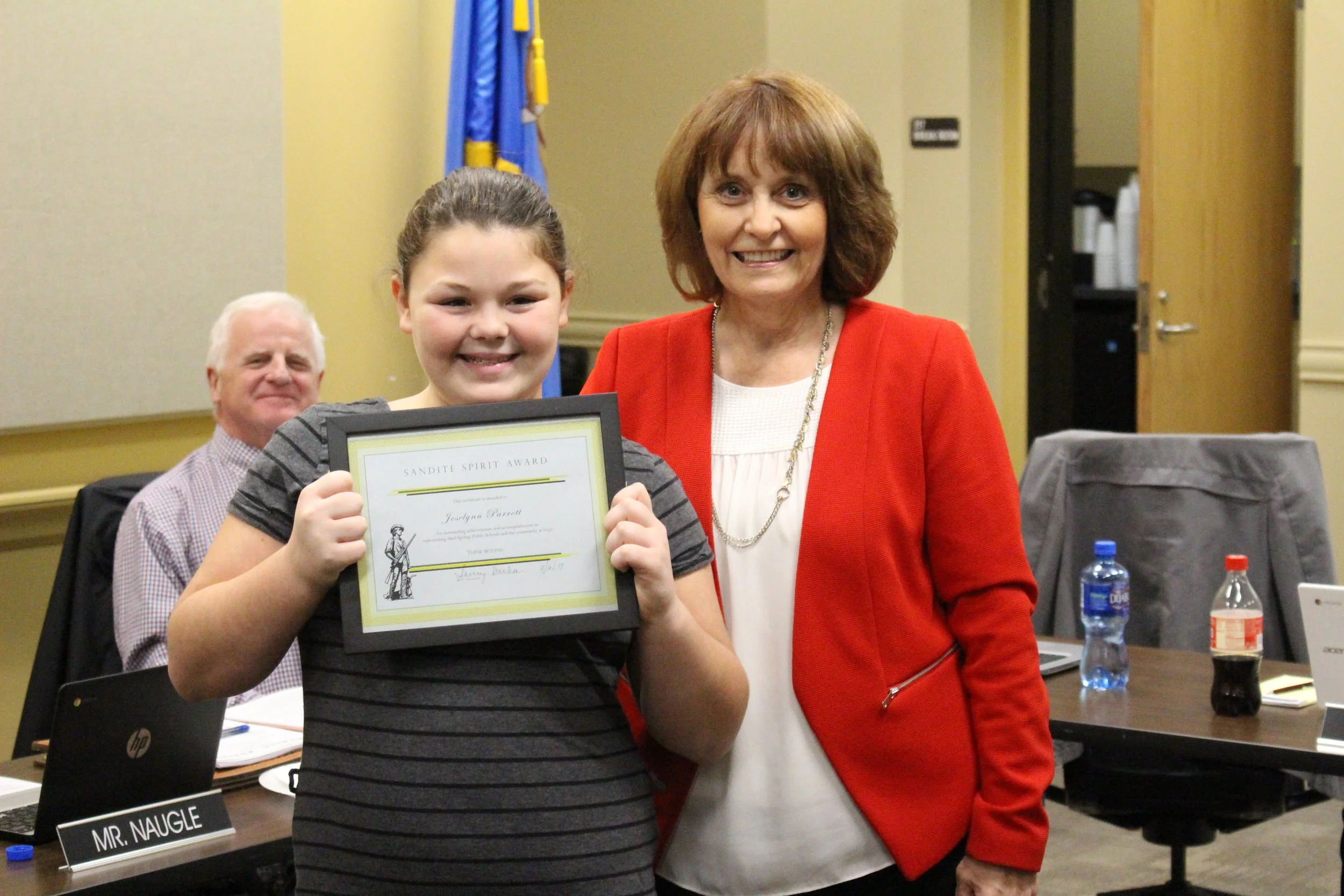Two Sand Springs City Councilmen are in the race, though one declined the invitation to speak. Ward 6 Councilman Brian Jackson, 34, who previously ran in the regular election last November, issued a statement.
"My campaign for Senate District 37 is a silent protest against the blatant disregard of the people’s voice through the elected official, who quit one year into his term. Too much time and too much money-to the amount of a half million dollars-have been wasted when we went through this political process a year ago. We are tired of the political nonsense we are bombarded with during elections. When will enough be enough? I will not raise one more dime, post one more sign, or campaign on any platform. Those that want to donate to my campaign, I ask you to find a local public school teacher and give that money to his/her classroom for supplies, as public education is still my number one priority. The choice of Senator for District 37 should be left to the people on voting day, not political games and influence.”
Ward One Councilman Phil Nollan, 59, spoke of his personal qualifications, his ties to Sand Springs, and his experience of working behind the scenes with his wife, House Representative Jadine Nollan. Jadine Nollan is in her seventh year at the Legislature, and previously served on the Sand Springs Board of Education for eleven years.
"I'm a nationally-certified project manager. I think during my process of my early years I learned how to manage projects and programs, I learned how to lead teams...learned how to deliver things as promised - on time and under budget...My recent employment with EMC, I had to work with Fortune 100 customers...What I found in working with those companies is, they had big demands like I know this job has. Like I know the job that my wife has to do. Meeting those demands is not going to be easy, but you've got to keep your word. You've got to keep your promises, and you have to do the best you can do to make it happen."
Following their speeches, the candidates each responded to three questions from the audience. The first question regarded school vouchers, which allow parents to receive a tax refund to send their students to private schools.
Hardesty declined to answer the question, citing a lack of knowledge on the subject.
Nixon expressed support for school vouchers in an ideal world, but said that our society and government isn't to the point yet that they would work. "We need to make sure that no children slip through cracks, ever. We need to find a good system."
Brian O'Hara, 56, touched heavily on vouchers during his opening remarks, and referred back to his earlier comments. "We're struggling, the schools are struggling...You make a choice if you want home school or private school and I respect that choice. I encourage that choice if that's what's best for your student...But that doesn't mean that tax payer money has to follow that student."
Nollan pointed out that proponents of vouchers often cite "school choice" as a major concern. "We already have school choice now...When we raised our kids in Sand Springs Public Schools, we could transfer our kids to a different school if we wanted to. We could ask for certain teachers for our kids to go through. If we didn't feel like public school was doing its job, we could home school our kids...You can send your kids to private school. If you don't live in the district, you can move into the district. In a sense, we really do have school choice now...Sending funding with the kid through a voucher system is not the solution."
"Lawyer answer, no," joked McAtee. "We need to fund our teachers, we need to fund our classrooms, we need to make it where we don't have to go out as a church, buy the supplies for all the teachers. We need to concentrate the money where it needs to be."
SEE RELATED: Word of Life church paints, cleans up Limestone Elementary
The second question asked "Will you increase the tax on oil and gas?"
"Yes, absolutely," said McAtee. "I don't want to put the tax burden on the citizens of Oklahoma until we have looked at every other alternative."
"It's an incentive tax, what's in place now," said Nollan. "The national average is 9.5%, in Oklahoma we average 3.2%. In Texas it's 8.3%. The research says that we probably need to take another look."
"Millions of dollars goes into drilling a well, which they may not get a dime out of if that well is dry," said O'Hara. "I've talked to a couple of companies, not the big guys, the guys that are just starting up. Their concern is that they can go elsewhere and drill...My position is, I don't support a gross production tax at this point. Only because the information I've received indicates that there would be a loss of wells if that were the case."
Nixon stated she would have liked to have seen the percentage increased to 4.5% during the last session, and that her biggest focus would be on getting Oklahoma away from a dependence on oil revenue.
"It's really not raising a tax, it's taking away a tax incentive," said Hardesty. "The oil companies are well diversified. When they say 'if you take away our tax incentive we're going to cut back on drilling' that's a load of bull. That's how they make their money, they're not going to cut back. I have people in my family that own oil companies, and I have a lot of people in my family that work for oil companies. But that doesn't mean I want to sit and give the oil companies special treatment."
The final question asked for solutions to the ongoing budgetary problems.
"Take away the tax incentives that aren't working," said Hardesty. He also discussed consolidating State agencies and commissions.
"Definitely want to look at incentives. I think that's a great start," agreed Nixon. "I think audits, very necessary. Anybody who's getting our tax dollars should be held accountable."
"I've told you where I think we need to start, and that means at the very beginning," said O'Hara. "The first month and a half, two months, if it takes the whole session we should be working on the budget. We don't need to throw bum legislation out."
"We need to do more on capping our incentives. Maybe some of the incentives stay, but we need to cap them," said Nollan.
"We need to make Oklahoma a 21st-century state," concluded McAtee. "We have agencies that were created 150 years ago still in existence."
Grady Grant, 62, is also running for the Republican nomination, but did not participate in the event. Democrat Allison Ikley-Freeman, 26, filed unopposed and will take on the winner of the Republican nomination in November.
The Republican primary will be held September 12th. The voter-registration deadline is August 18, and the deadline to request an absentee ballot is September 6th.
Click on the candidates' images below to read their full statements.

















